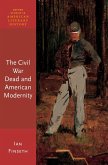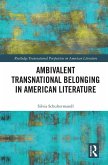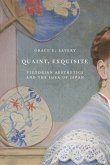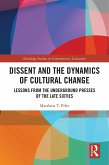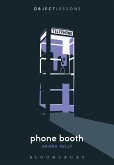Most cultural critics theorize modernity as a state of disenchanted distraction, one linked to both the rationalizing impulses of scientific and technological innovation and the kind of dispersed, fragmented attention that characterizes the experience of mass culture. Patrick Kindig's Fascination, however, tells a different story, showing that many fin-de-siècle Americans were in fact concerned about (and intrigued by) the modern world's ability to attract and fix attention in quasi-supernatural ways. Rather than being distracting, modern life in their view had an almost magical capacity to capture attention and overwhelm rational thought.
Fascination argues that, in response to the dramatic scientific and cultural changes of the late nineteenth and early twentieth centuries, many American thinkers and writers came to conceive of the modern world as fundamentally fascinating. Describing such diverse phenomena as the electric generator, the movements of actresses, and ethnographic cinema as supernaturally alluring, they used the language of fascination to process and critique both popular ideologies of historical progress and the racializing logic upon which these ideologies were built.
Drawing on an archive of primary texts from the fields of medicine, (para)psychology, philosophy, cultural criticism, and anthropology-as well as creative texts by Harriet Prescott Spofford, Charles Chesnutt, Theodore Dreiser, Paul Laurence Dunbar, Edward S. Curtis, Robert J. Flaherty, and Djuna Barnes-Kindig reconsiders what it meant for Americans to be (and to be called) modern at the turn of the twentieth century.
Fascination argues that, in response to the dramatic scientific and cultural changes of the late nineteenth and early twentieth centuries, many American thinkers and writers came to conceive of the modern world as fundamentally fascinating. Describing such diverse phenomena as the electric generator, the movements of actresses, and ethnographic cinema as supernaturally alluring, they used the language of fascination to process and critique both popular ideologies of historical progress and the racializing logic upon which these ideologies were built.
Drawing on an archive of primary texts from the fields of medicine, (para)psychology, philosophy, cultural criticism, and anthropology-as well as creative texts by Harriet Prescott Spofford, Charles Chesnutt, Theodore Dreiser, Paul Laurence Dunbar, Edward S. Curtis, Robert J. Flaherty, and Djuna Barnes-Kindig reconsiders what it meant for Americans to be (and to be called) modern at the turn of the twentieth century.
Dieser Download kann aus rechtlichen Gründen nur mit Rechnungsadresse in A, D ausgeliefert werden.





